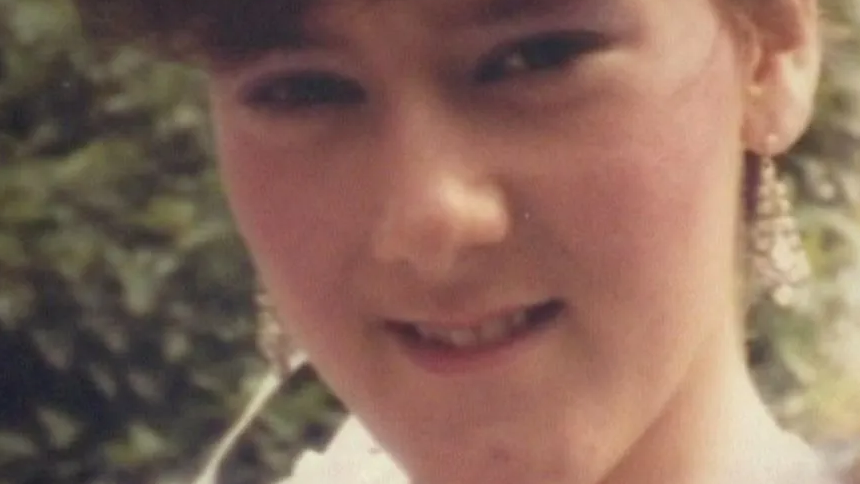Killer seeking release has 'deep regrets'
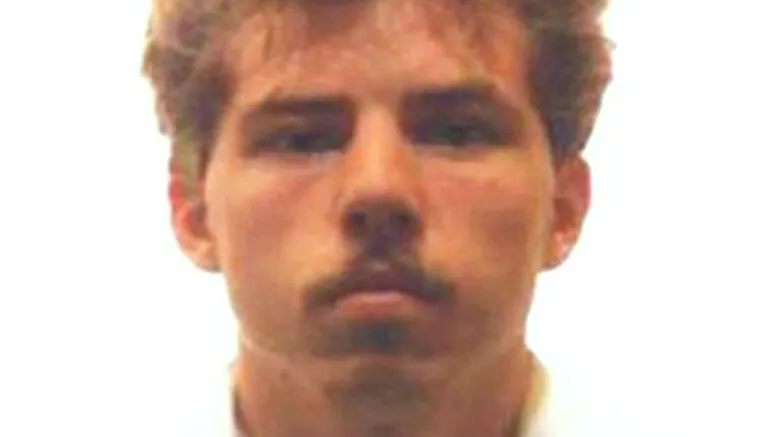
Billy Dunlop was jailed for murder in 2006
- Published
A murderer who was convicted after a change in the double jeopardy law has told a parole board he "deeply regrets" killing a mother-of-one 35 years ago.
William Dunlop was jailed for life in 2006 for the murder of Julie Hogg, 22, in 1989, whom he strangled and hid behind a bath panel at her home in Billingham, County Durham.
Having served the minimum term set by a judge, Dunlop, now 61, has applied for release, with professionals saying he is suitable for an open prison despite being found to have committed more offences.
The Parole Board is normally held in private but his case is being heard partially in public, with a decision to be announced at a future date.
Professionals recommended moving Dunlop to an open prison rather than release, the panel heard, but Ms Hogg's family, who campaigned for his conviction, oppose a move out of high-security conditions.
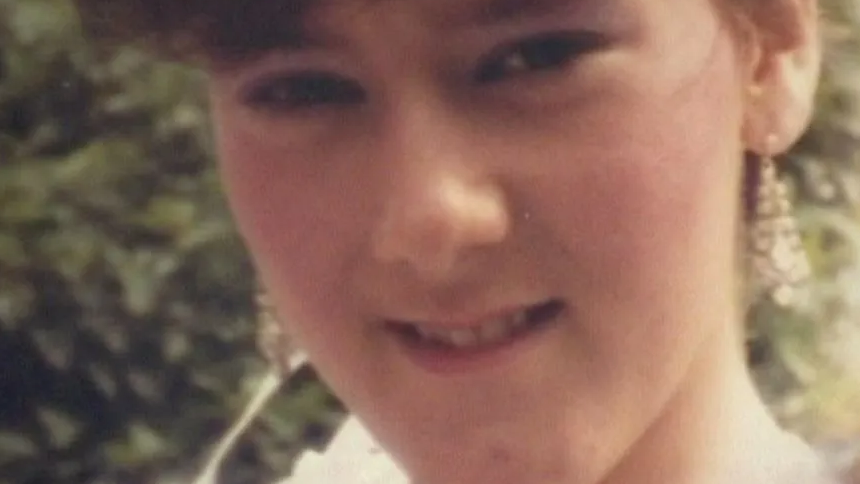
Julie Hogg was strangled by Dunlop in 1989
The panel of four, which is led by a retired crown court judge, appeared via video link at the Royal Courts of Justice in London from an unnamed prison.
The panel chairman said they had a dossier of more than 1,400 pages about Dunlop and had heard from Ms Hogg's family about the impact of her murder in a closed session.
Dunlop told the panel he was a "horrible" person who would use violence when challenged or if he felt out of control.
He added he was "so unpredictable" and imposed "unrealistic expectations" on people in his life, and then attacked them when they failed to meet them.
He said his "difficult" childhood had taught him to "supress" his feelings and not show "weakness", and the only emotions he displayed were happiness and aggression.
'Violent, hideous person'
The killer and convicted liar, who had convictions for multiple offences including burglary and assaults, admitted domestically abusing his girlfriends and hitting one with a pick axe handle, but he denied he would use violence to get sex.
Dunlop, who did not appear on camera, told the hearing he was a "car crash waiting to happen", a "violent, hideous, uncaring person", which he now deeply regretted.
He said Ms Hogg "got all of" the rejection-fuelled anger, adding: "I'm not making excuses, that's who I was."
Dunlop said he knew the impact he had had on Ms Hogg's family but said he too had been affected by her death, although he added he was not seeking sympathy.
He said Ms Hogg's mother Ann Ming, who campaigned to change the law so he could be prosecuted again for the murder, was the "bane" of his life and he "used to hate her", but now he had a "lot of respect" and "time" for her and her family.
"I bear no malice towards any of them whatsoever," Dunlop said, adding being jailed for Ms Hogg's murder "saved" him as, if he had been free, he would have committed more violent crimes and hurt people.
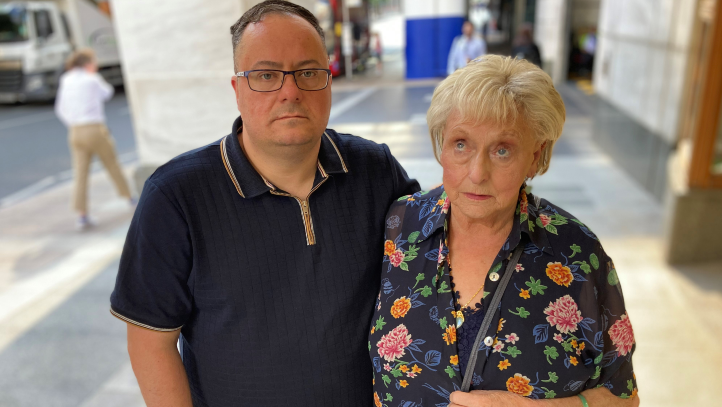
Julie Hogg's son Kevin and mother Ann Ming oppose moving Dunlop out of a high-security prison
The panel chairman said they had considered some 900 pages relating to at least 12 other allegations which had been made against Dunlop but not prosecuted, and made several findings of fact, with some of the accusations proved on the balance of probabilities.
Details of the allegations were not given to preserve the privacy of the complainants, the chairman said, but they would be considered when determining what risk Dunlop posed.
A prison offender manager, who had worked with Dunlop since his arrival at her prison in December 2022, said she was confident he should be moved to an open prison.
She said Dunlop had
shown genuine remorse and shame for killing Ms Hogg and "empathy" and understanding of the impact the murder had had on her family and the wider community
been "open and honest" with professionals and spoken about his previous offending and "patterns of behaviours"
held enhanced status in prison since 2011, meaning he was "consistently well-behaved" and held a "trusted" job involving supporting other prisoners
partaken in intensive therapy and programmes to address "unhelpful thinking" and develop "risk management skills"
understood and had strategies for handling his "risk factors", including substance abuse and heightened emotions
never expressed violent sexual fantasies, failed a substance test or had any "adjudications" made against him
fulfilled the suggestions made by the secretary of state after a previous application for parole was rejected in 2022
consistently complied with custody rules and posed a "low" risk of absconding
The manager also said there was no further work to be done with him in a closed prison and it was "important" he now be tested in open conditions.
She said Dunlop still denied one of the allegations despite the panel having found it proven, but she believed that was because he felt "shame" rather than deliberately lying about it.
She said his full release was not being recommended, as he had been in prison for a long time and being out in the community could be "destabilising" and lead to a return to his "unhelpful thinking" which he had developed coping strategies for.
'Model prisoner'
A key worker for Dunlop said the killer "wished he could turn back time" and undo the murder, adding he claimed "wasn't in a good place" and was "angry" and "rageful" at the time.
The key worker also said Dunlop was "aggrieved" at the panel finding he had committed other offences and had complained he had not been "trusted", adding Dunlop had "owned up to" certain parts of the accusations.
Dunlop was a "model prisoner" and had "very good insight" into what was "wrong" with him at the time of the killing, with his efforts to turn his life around since being "quite admirable", the key worker added.
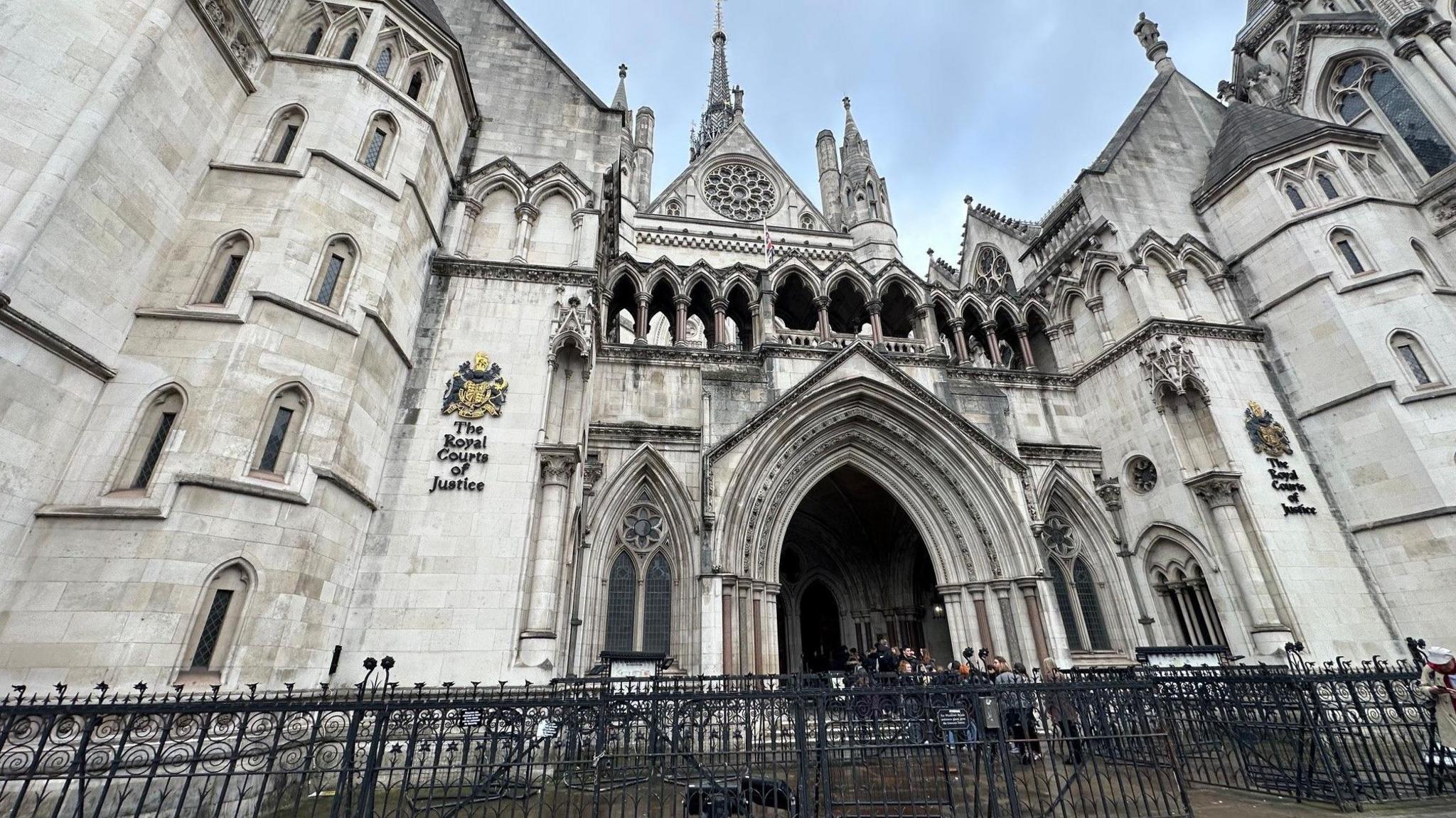
The parole board hearing is being held at Royal Courts of Justice in London
The chairman said Dunlop strangled Ms Hogg on 16 November 1989, then "mistreated" her body before hiding it beneath a bath, where it was found on 5 February 1990 by her mother Ann Ming.
Two juries "disagreed" about whether he was guilty, with prosecutors then following convention by not seeking a third trial, the chairman said, and Dunlop being formally acquitted.
In 1997 Dunlop attacked an ex-girlfriend and her new partner with a knife and baseball bat and was jailed for seven years for wounding with intent, having initially been charged with attempted murder.
During that incarceration, he admitted to a prison guard he had killed Ms Hogg, leading to him being jailed further for perverting the course of justice.
He told the board the confession was "hiding behind the veneer" of his image and he talked about the killing out of "bravado".
'Fear and notoriety'
Dunlop was unable to be tried again for her murder because of the so-called double jeopardy law, which had been in existence for 800 years and prevented a person being prosecuted again for a crime which they had been cleared of.
Ms Ming led a successful campaign to overhaul the law, which resulted in Dunlop admitting murder and being jailed at the Old Bailey for life with a minimum term of 17 years in 2006.
The chairman said Dunlop had a "relatively minor record" of offending dating back to the 1970s when he was 12, but in the late 1980s started committing more violent crimes for which he was not prosecuted.
Dunlop cultivated a reputation of fear and notoriety which made his victims "frightened" to speak out, the chairman said.
The hearing continues, with the parole board chairman saying the panel would consider what risk Dunlop might pose in the future and whether that could be managed.
Follow BBC Tees on X,, external Facebook, external, Nextdoor and Instagram, external. Send your story ideas to northeastandcumbria@bbc.co.uk.
Related topics
- Published26 June 2024
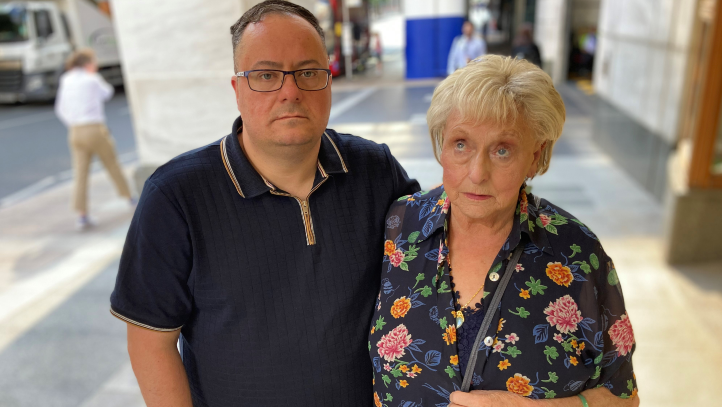
- Published25 June 2024
